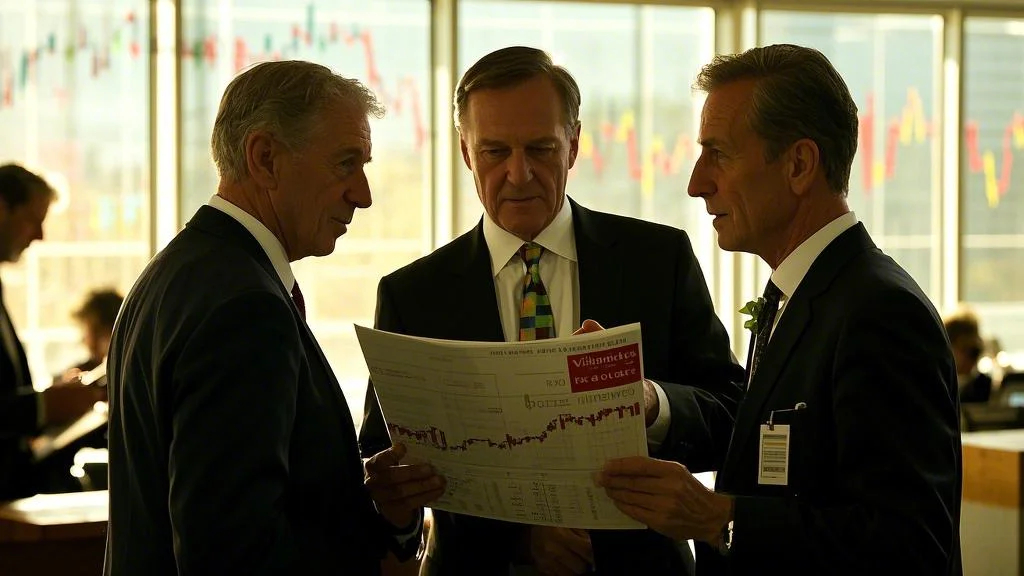Navigating Global Economic Trends in Uncertain Times
Understanding global economic trends has become increasingly crucial for investors and policymakers alike. The current economic landscape is shaped by a complex interplay of factors, including geopolitical tensions, technological advancements, and shifting consumer behaviors. These elements collectively influence the direction of financial markets, creating both challenges and opportunities for market participants. As we move through this period of economic transition, it's essential to analyze these trends carefully to make informed decisions.
One of the most significant factors affecting the global economy is the evolving approach of central banks worldwide. The central bank policy decisions, particularly regarding interest rates and quantitative easing, have far-reaching consequences on inflation, currency values, and investment strategies. These policies not only impact domestic economies but also create ripple effects across international markets, influencing trade balances and capital flows.
Economic Forecast: What Lies Ahead?
Looking at the economic forecast for the coming years, several key themes emerge. The global economy is expected to experience moderate growth, with emerging markets playing an increasingly important role. However, this growth trajectory is not without its risks, including potential trade conflicts, energy price volatility, and the ongoing impact of climate change on economic activities. These factors contribute to the complexity of making accurate economic predictions.
In the realm of investments, stock market trends continue to reflect the broader economic narrative. The shift towards sustainable investing and the growing importance of technology companies are reshaping the investment landscape. Investors are increasingly looking for opportunities that align with long-term global trends, such as digital transformation and the transition to a low-carbon economy. This shift in investment focus is influencing corporate strategies and driving innovation across various sectors.

The Role of Central Banks in Shaping Economic Outcomes
Central banks remain at the forefront of economic management, with their central bank policy decisions having significant implications for both domestic and global economies. The delicate balance between controlling inflation and supporting economic growth continues to challenge policymakers. In recent years, we've seen a trend towards more transparent communication from central banks, as they seek to manage market expectations and reduce economic uncertainty.
This evolving approach to monetary policy is having a profound impact on financial markets. Investors are closely watching central bank announcements for clues about future policy directions, which in turn influence asset allocation decisions. The interplay between monetary policy and market reactions has become increasingly complex, requiring sophisticated analysis and risk management strategies from market participants.
Stock Market Trends in a Changing Economic Landscape
Examining current stock market trends reveals a dynamic and rapidly evolving investment environment. The rise of technology-driven companies, the growing importance of environmental, social, and governance (ESG) factors, and the increasing influence of retail investors are all shaping market dynamics. These trends are occurring against the backdrop of broader global economic trends, creating both opportunities and challenges for investors.
One notable development is the growing correlation between different asset classes, as global economic factors increasingly drive market movements. This interconnectedness means that events in one part of the world can quickly impact markets elsewhere, highlighting the importance of a global perspective in investment decision-making. As we look to the future, understanding these complex relationships will be crucial for navigating the evolving investment landscape.
Preparing for Future Economic Challenges
As we consider the economic forecast for the coming years, it's clear that businesses and investors will need to adapt to a rapidly changing environment. The increasing importance of digital technologies, the transition to sustainable energy sources, and the evolving global trade landscape are all factors that will shape economic outcomes. Understanding these trends and their potential impacts will be essential for making informed decisions in this complex environment.
In this context, the role of central bank policy becomes even more critical. As central banks navigate the challenges of managing inflation while supporting economic growth, their decisions will continue to have significant implications for financial markets and the broader economy. By staying informed about these developments and understanding their potential impacts, businesses and investors can better position themselves to navigate the challenges and opportunities that lie ahead.
